Why Celebrating Idhul Adha Isn’t Just About the Animal Sacrifice
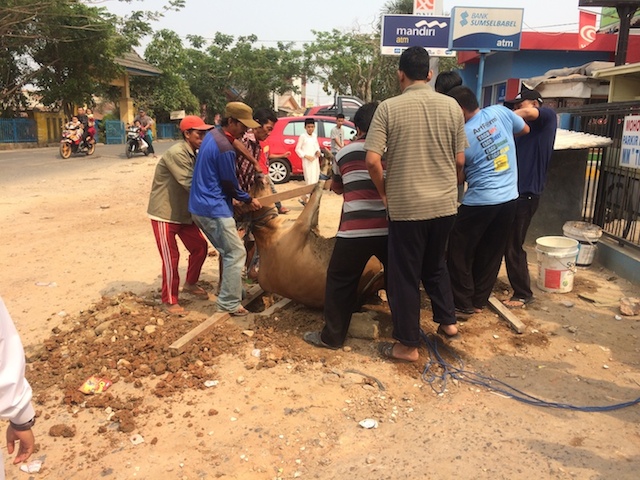
 I think the cows were bigger last year,” I said to my former host sister, as we surveyed the parking lot where we were about to witness qurban, the ritualistic slaughtering of cows and goats for Idhul Adha. Two cows and two goats were tied to the gate, and a group of men were slowly approaching the first cow. She nodded in agreement and took another picture of the cluster of people gathered for the ceremony.
I think the cows were bigger last year,” I said to my former host sister, as we surveyed the parking lot where we were about to witness qurban, the ritualistic slaughtering of cows and goats for Idhul Adha. Two cows and two goats were tied to the gate, and a group of men were slowly approaching the first cow. She nodded in agreement and took another picture of the cluster of people gathered for the ceremony.
This might not be a typical non-Muslim Westerner’s first thoughts when confronted with the annual ritual of qurban, but this is my second year in mostly Muslim Palembang and my second time attending a qurban ceremony, thanks to a generous invitation from the family who were the first to host me when I arrived in the city.
I had written about my first encounter with qurban last year for a different publication, but even I was unprepared for how unfazed I was this time around. Last year, I spent the entire time trying to get close to the action, my camera snapping the whole time, from the hobbling and carrying of the first cow to a hole dug in the ground to the chanting as its throat was cut and red blood gushed into the hole to the carrying of the now-dead cow to tarp to be butchered to the preparation by the women of the meat into dishes such as pindang, a rich spicy soup.

I had been so intently fascinated by the ritual I had disturbed myself, wondering what about it was so compelling and if it was something in me that was disturbingly bloodthirsty or if it was merely an unusually intense anthropological curiosity. This year, overheated in the hot morning sun, I opted to retreat into the house before the last goat was slaughtered where others made squeamish by the blood had stayed.
I had been so intently fascinated by the ritual I had disturbed myself, wondering what about it was so compelling and if it was something in me that was disturbingly bloodthirsty or if it was merely an unusually intense anthropological curiosity.
Eid al-Adha, known as Idhul Adha in Indonesia, is the Muslim Feast of the Sacrifice. This feast commemorates the Prophet Abraham’s (also Ibrahim) submission to Allah or God. This holiday is in remembrance of how Allah came to Abraham in a dream and commanded him to sacrifice his son Ishmael (Isma’il). The Devil tempted him to disobey, but Abraham obeyed Allah. As he was about to kill his son, Allah intervened and provided him instead with a sheep (often thought to be a ram or a lamb) to be sacrificed in Ishmael’s stead.
In the Muslim world, Idhul Adha is a three or four day celebration determined by the lunar calendar and is the tenth day of the month of Dhul Hijja. It also marks the end of Hajj, or travel to Mecca, one of the Five Pillars of Islam. This year, Idhul Adha took place on October 5.
On Idhul Adha, Muslims all around the world attend morning prayers in mosques (masjids in Indonesia), wear new clothes, and spend the day receiving guests or visiting the homes of friends and family. In countries such as Jordan, Malaysia, and Indonesia, Idhul Adha is a public holiday. Many Muslims, particularly in Muslim-majority countries, symbolically reenact Abraham’s sacrifice through qurban (also kurban), the ritualistic slaughter of halal livestock, most commonly cows, goats, sheep, or camels.
Why Celebrating Idhul Adha Isn’t Just About the Animal Sacrifice
There are many ways to perform qurban. In countries such as Canada, the United Kingdom, Australia, and the United States, buying livestock for slaughter outside certain facilities is prohibited, so Muslims instead may purchase a whole carcass from a butcher or a large portion of meat for the purposes of Idhul Adha. In Muslim countries, families or groups of people frequently buy live animals and slaughter the animals themselves, chanting the name of Allah as the animals’ throats are cut, to remember the ultimate centrality of God. No matter how the meat is obtained, it is divided into thirds with a portion reserved for the poor. Donations are frequently given in addition so that the poor may buy food and clothes for Idhul Adha.
The first time I had watched the slaughter of the cows and goats, I recall the loftiness of the thoughts that went through my head: how far away many Americans typically were from the preparation of the meat we eat in light of how personal and how meaningful this slaughter was, the nature of bloodletting as a religious ritual, the community that is the heart of feasts like Idhul Adha.
To me, a first-timer in a majority-Muslim nation, all I could focus on was qurban because Wow, gee whiz, take a look at that! How exotic! Don’t get to see that in America!
The last is the only one that really has stuck with me, because ultimately, feasts like Idhul Adha and rituals like qurban are not unusual in the grand scheme of things in places like Indonesia. They are special, holy days, yes, but despite the more noticeable body count compared to American public holidays such as Thanksgiving (Although how many turkeys die every year just for Thanksgiving? And how likely are Americans to actually see their dinner die or to do the deed themselves?), Idhul Adha and its like are but a regular part of the calendar, something sure to be repeated every year. To me, a first-timer in a majority-Muslim nation, all I could focus on was qurban because Wow, gee whiz, take a look at that! How exotic! Don’t get to see that in America!
My second time around, I simply observed qurban briefly and then was finished. I spent the rest of the day in my family’s house, greeting visitors, snatching food from the large platters continually being replenished, napping, playing with multiple fat-cheeked babies, and chatting with my host sisters.
Yes, qurban may be one of the most important parts of Idhul Adha, but it’s also a time to remember and commit to God, share what you have with the community, and spend the day with the people you love. It’s ultimately a holiday, like Easter or Christmas. It’s not exotic. It’s just a special day.
Why Celebrating Idhul Adha Isn’t Just About the Animal Sacrifice photo by Anna Cabe.

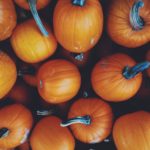

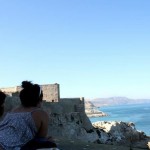
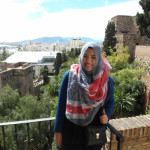
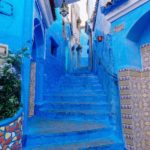

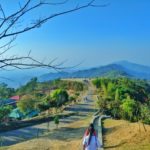

One thought on “Why Celebrating Idhul Adha Isn’t Just About the Animal Sacrifice”